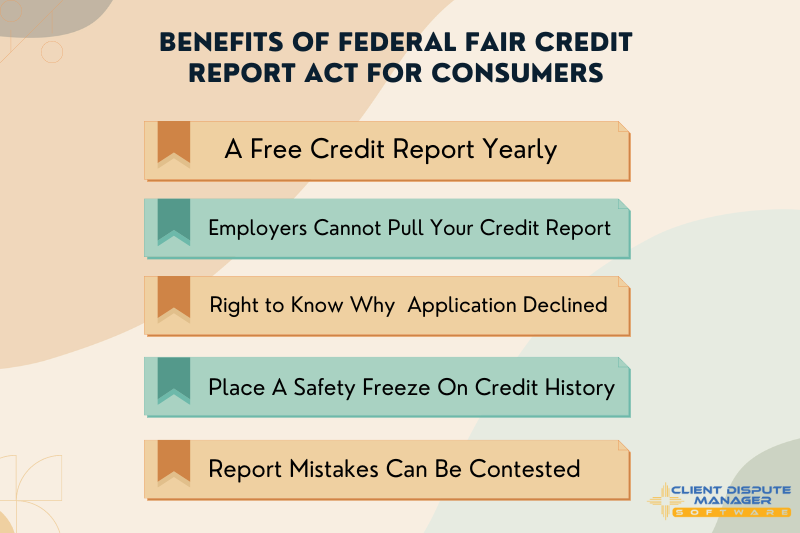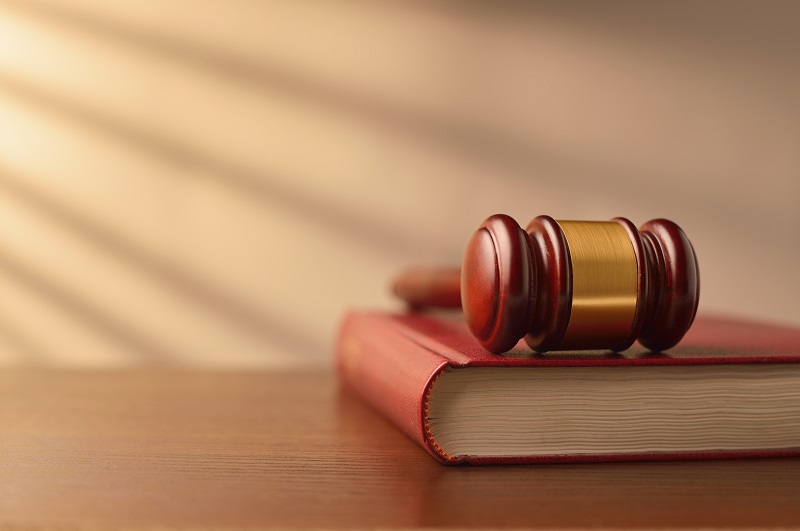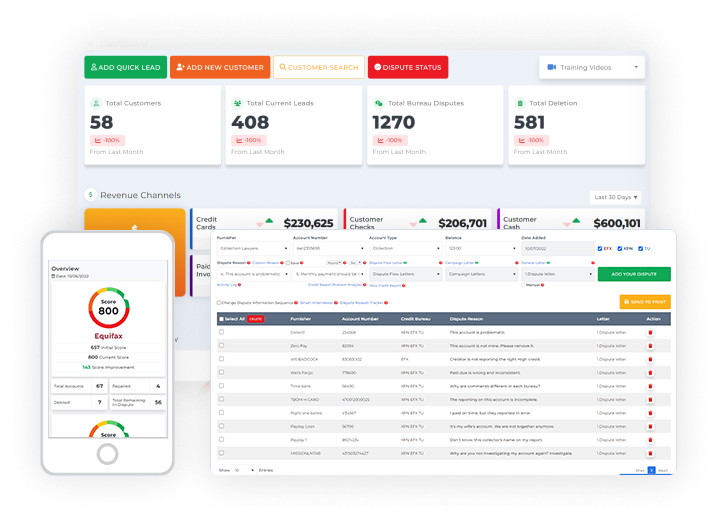The Fair Credit Report Act safeguards your concerns by limiting how credit monitoring organizations obtain, secure, and distribute your information. The Fair Credit Reporting Act includes regulations about who can acquire your credit information and how you can receive it.
The law was adopted in 1970 to enhance fairness, confidentiality, and authenticity in how credit was recorded. Over the years, it has been updated to give more extensive credit-reporting security, specifically as identity theft risks have escalated. Provided that it encompasses these many financial products and services such as borrowing, credit cards and mortgages, and loans.
It’s beneficial to know how this legislation operates. That’s why this article is written to guide you on the Fair Credit Reporting Act and your rights under the FCRA.
What Is The Fair Credit Reporting Act's Purpose?
When you register for an account, an auto loan, a home loan, a credit card, or any other type of loan, the issuing firm reviews your credit record to determine your trustworthiness. The conditions you are provided for lending may be partially determined by your credit rating and the details of your credit history.
Your credit record impacts more than simply your capacity to obtain loans and the annual percentage rates on your credit card. In determining if they can recognize you to settle your rental fees on time, expected landlords may examine your credit history to determine your creditworthiness.
In certain countries, employers are permitted to review applicants’ credit reports prior to employment. Additionally, insurance providers may examine your credit rating depending on your country to decide whether to issue coverage.
How Does Federal Fair Credit Report Act Benefit Consumers?

The FCRA protects you by controlling how the data in the client’s report can be acquired and utilized. Here is a summary of the law’s most important aspects.
1. Each Year, You Are Entitled To Receive A Free Credit Report
Every of the three credit reporting companies is required under the FCRA to provide you with one free credit reporting every year. Some websites offer free credit checks but then requests for payments.
The annualcreditreport.com is the portal for accessing this service.In addition, as a result of COVID-related changes, this website currently provides free weekly viewing of your credit record. You do not need to spend money on a service that is available without payment.
This accessibility is relevant to your substantial right to see the information in your credit history. The Fair Credit Report Act safeguards these privileges, making it simpler and more accessible to check your personal credit record.
Please note that the FCRA specifies a maximum of $13 per extra check if you request over one credit history per year.
2. Employers Cannot Pull Your Credit Report Without Your Explicit Approval
Before providing credit card data to a potential employer or an employer, credit reporting companies must, in most situations, obtain written authorization from you. This can provide you with a bit more control over the information disclosed throughout your job search.
3. If Your Application For Credit Is Declined, You Have The Right To Know Why
Most individuals rarely consider their credit rating and reporting until they are declined for credit cards or loans. You have the legal right to be informed of the reasons for a denied loan application if you are startled by the denial.
This is really a common strategy for folks to uncover problems in their credit history, so be sure to comprehend why you have been denied credit. If it is not a mistake, this information might still assist you in making future decisions that will increase your credit score.
4. The Fair Credit Reporting Act Allows You To Place A Safety Freeze On Your Credit History
With the advancement of technology, identity theft has grown easier. Infamous data theft demonstrates the necessity for continual monitoring and data protection. A user’s credit may be harmed if someone tries to fraudulently get credit cards or loans in their name.
According to Ragan, in the year 2018, a new law mandated the provision of free safety freezes. A security freeze is advantageous since it prevents the majority of organizations from viewing your credit history until you ask that the freeze be lifted.
Although credit agencies can lift safety freezes in rare cases, and recent lenders may continue to read your credit records, this precaution allows you to take fast action if you discover that your data has been compromised.
Furthermore, the FCRA contains remedies for identity theft claimants, most of which can be accessed after getting an identity theft statement.
5. Credit Report Mistakes Can Be Contested
You are not required to take a low credit rating resulting from inaccuracy in your credit history. You can give documentation to refute the error, such as proof that you made all loan and credit card timely payments and never skipped a payment.
Maintaining all loan and credit card documentation in a secure location is, you might expect, a crucial action to take to correct any credit history problems in the years ahead.
Credit reporting organizations are expected to analyze the proof you offer in a disagreement and notify the relevant parties, such as lenders, who gave the details in doubt.
The Fair Credit Reporting Act also mandates that they need to correct their credit history if they discover an error due to the complaint. Errors are uncommon in reports, but they occur frequently enough that you should investigate a low rating if it is not expected.
Occasionally, the data is not incorrect but merely out of date. The FCRA specifies how prolonged a credit-reporting company may continue to include unfavorable data from your history on your credit file.
In most instances, unfavorable information cannot be disclosed after seven years or ten years in the bankruptcy scenario. You may register a dispute if you discover valid but obsolete data on your report.
What Are The Fair Credit Reporting Act Violations?

Given the quantities of data, errors are inevitable. The FCRA enables customers to spot errors in their credit reports and register complaints. It also mandates that reporting organizations examine and amend inaccurate data.
The Federal Fair Credit Reporting Act complaints and others include consumer data on their sites to notify consumers of their privileges and what to do if they discover inaccurate information.
The Common Fair Credit Reporting Act Violations include the following:
- Not updating reports following the end of bankruptcy is only one common example.
- Additionally, agencies may present existing debts as fresh and report a consumer-closed bank account as ongoing.
- Creditors provide incorrect financial data to consumer credit bureaus.
- Due to a similarity of name or social security identification number, credit reporting agencies frequently mix up the details of two individuals.
- Agencies fail to adhere to conflict resolution norms.
- Removing your complaint for an improper reason. For instance, prior to filing some types of litigation, you may need to review your credit record to verify whether you have any assets.
- In breach of the FCRA, neglecting to give you notices of your credit history or score.
- Information provided by reporting agencies to unauthorized individuals or corporations.
- Not having a fair method for you to address identity theft or providing credit card data on an organization where identity theft has previously been notified.
- Mixing files with another individual with comparable background info is often as negligent as failing to differentiate the Sr. and Jr. in identical surnames.
Damage Recovery For Fair Credit Reporting Act Violations
The known information by the Federal Fair Credit Reporting Act is so vital to a person’s financial well-being that if the FCRA is violated, the victim may file a lawsuit and receive damages.
The measure by which a complainant can receive compensation relies primarily on whether the infringement was intentional or careless. Credit reporting organizations, businesses that provide records to credit rating agencies, and anybody who uses information from a credit file to make employment or housing decisions may be liable for potential violations.
Penalties For Frivolous FCRA Lawsuits
If a consumer credit agency believes that a consumer’s dispute is unfounded or immaterial, it has the authority to close the investigation.
This usually occurs when the client fails to provide enough evidence to examine the disputed facts.
They may also end up losing a lawsuit if they sue dishonestly or bother a government agency, company, or person. If this occurs, the consumers may be ordered to pay the legal expenses associated with filing bad faith documents.
Conclusion
Credit reporting firms create reports containing valuable consumer credit records and information. These statistics can include the timeliness of your credit card transactions and the types of existing loans. This data is important for establishing your trustworthiness in a broad range of circumstances. But you do not want it accessible to everybody. Should you want to improve or keep your credit score at a good level, understanding Fair Credit Reporting Act would be a lot helpful.
Bonus: Now that you have read this article, why not take your new skill and start your own credit business helping others? We have free training that can help you do just that.
Click here to learn more.



